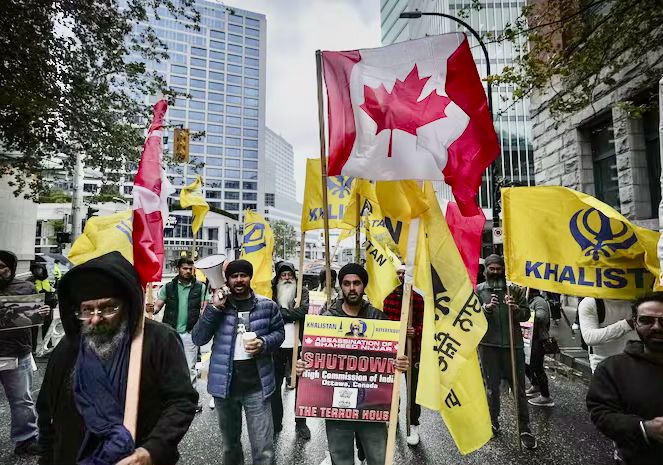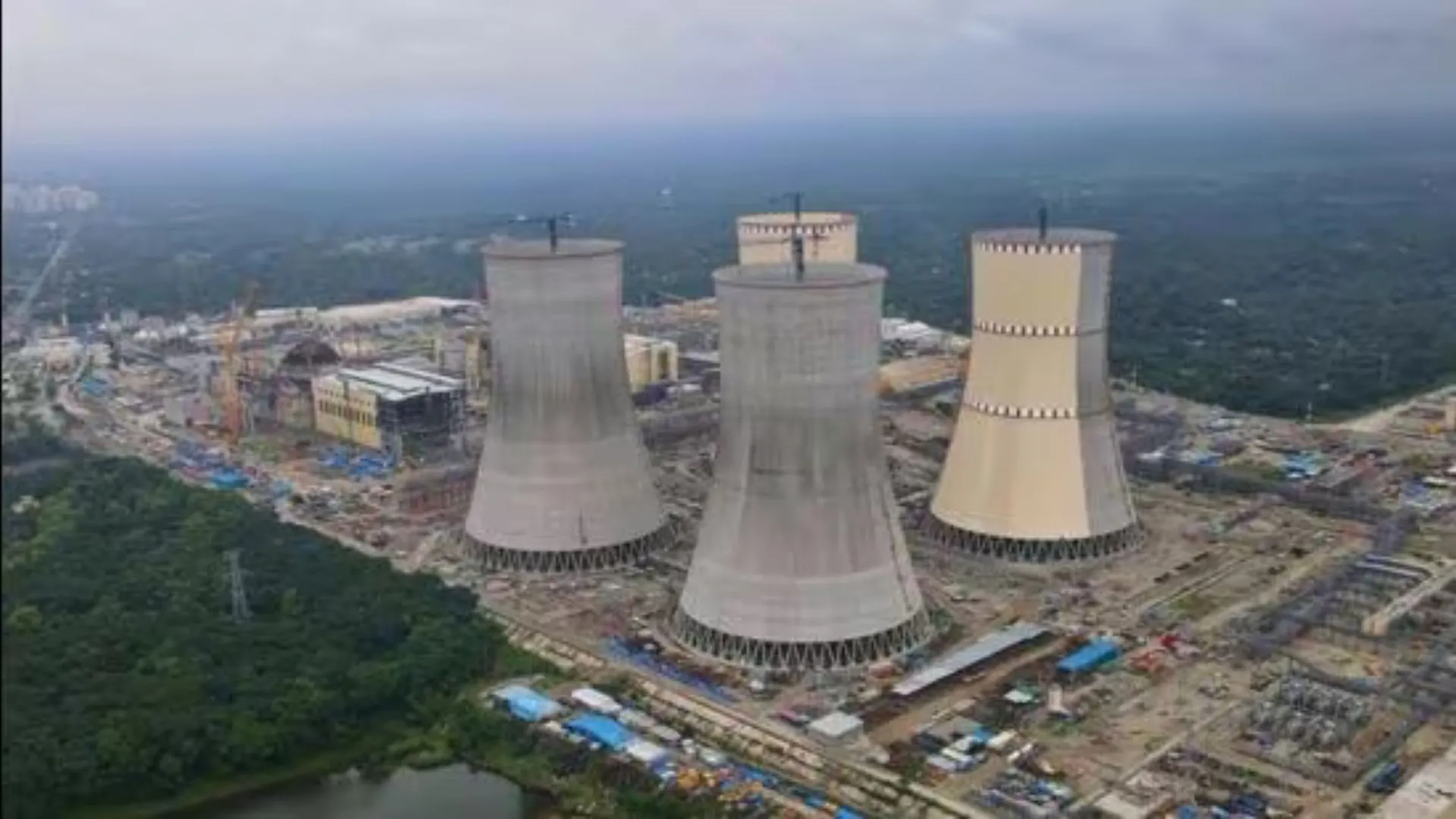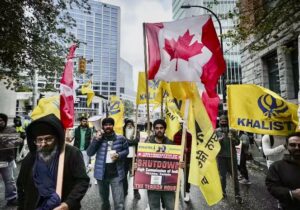External Affairs Minister Jaishankar gave a message to Antony Blinken that a swift and strict action by the US against pro-Khalistan elements is a must. The Indian and US ministers also focused on the Indo-Pacific amid China’s aggressive agenda.
The fifth India-US “2+2” Ministerial Dialogue held here on Friday saw New Delhi conveying its serious concerns to Washington over “the increasing activities of pro-Khalistani elements in Canada”. During the meeting with his US counterpart Antony Blinken, External Affairs Minister S Jaishankar flagged the increasing presence of pro-Khalistan incidences and members in North American country Canada. In another significant development, Jaishankar and Blinken discussed the strategy to deal with the abiding challenge for both the US and India—the growing aggression of China in the Indo-Pacific and other maritime regions including the South China Sea. The “2+2” ministerial dialogue also explored the ways to build progress already made in defence, diplomacy, strategic sphere and technology. The foreign and defence ministers from both India and US focused also on wars in Gaza and Ukraine and on how the terrorism continues to grow in the region.
The American delegation at the “2+2” ministerial dialogue talks was led by US Secretary of State Antony Blinken and US Defence Secretary Lloyd Austin while External Affairs Minister S Jaishankar and Defence Minister Rajnath Singh headed the Indian side. Diplomatic sources told The Daily Guardian that Jaishankar used the opportunity to draw the attention of the US side to China’s aggressive agenda, increasing threat of terrorism in the region, and Ottawa’s failure to rein in pro-Khalistan militants operating from Canadian soil. “Jaishankar also suggested to the US counterpart that the Biden administration needs to be tough on such elements and it should also mount pressure on Canada to take action against pro-Khalistan elements active on its soil,” a diplomatic source told TDG.
Foreign Secretary Vinay Kwatra confirmed that they flagged the increasing presence of “pro-Khalistan” incidences and members in Canada to the US. “We have core security concerns. They (the US side) understand our concerns”, Foreign Secretary Vinay Kwatra indirectly referring to activities of pro-Khalistani elements in Canada. “We have core security concerns and I am sure you are all aware of the recent video that has surfaced from one such individual”, Vinay Kwatra added.
In fact, US/Canadian Sikh extremist and Sikhs For Justice (SFJ) leader Gurpatwant Singh Pannun released a threat video asking Sikhs not to travel via Air India flights after 19 November. Recently, in a video message which was circulated on social media, Pannun sent a threat message asking Sikhs not to fly Air India. He said, “Don’t fly Air India after 19 November, your lives may be in danger.”
India wants both the US and Canada to take legal action in view of this message by Pannun, sources said. Jaishankar’s message to the US seeking action against pro-Khalistan elements during the talks was significant in this context, said officials here.
“Concluded a substantive India-US 2+2 Ministerial Meeting. Followed up on @narendramodi’s State visit to the US this June. Our agenda covered advancing our strategic partnership, including elevating our defence ties, moving forward in space & tech, future logistics cooperation and people to people contacts,” Jaishankar posted this on X. He also informed that “Also exchanged perspectives on the Indo-Pacific, South Asia, West Asia and Ukraine conflict. Reaffirmed our commitment to our collaboration in the multilateral arena and engaging the Global South. Thank @SecBlinken and @SecDef for their friendship and contributions.”
In what augurs well for New Delhi’s strategy to tackle challenges from China, India-US 2+2 Ministerial Dialogue held an in-depth discussion on Beijing’s belligerence during the talks, sources said. Jaishankar, Rajnath in discussion with their US counterparts explored ways to address the regional concerns in the Indo-Pacific, with Chinese aggression in mind. Recent development in the South China Sea (SCS) where the Chinese navy has been on the rampage also figured during the dialogue. The matter was considered to be quite relevant to the four Quad nations- US, India, Australia and Japan, sources added.
As the India-US 2+2 ministerial dialogue began, Defence Minister Rajnath Singh came out with a statement, saying that both nations find each other in agreement on strategic issues which obviously include countering China’s aggression. He termed the partnership between the two nations as critical for ensuring a free, open, and rules-bound Indo-Pacific region. Singh said, “…The India-US defence relationship has evolved into a strategic partnership characterised by mutual trust, shared values, and a growing recognition of common interests in maintaining regional and global security. We increasingly find ourselves in agreement on strategic issues, including countering China’s aggression, promoting a free and open Indo-Pacific, and addressing regional security challenges.”
During the meeting, India and the US discussed global strategic partnership, defence cooperation, emerging technologies, people-to-people ties, and regional concerns in the Indo-Pacific, as well as the Israel-Hamas conflict.
Highlighting that India and the US are exploring cooperation in domains such as critical technologies, civil outer space and critical minerals, along with already established areas, External Affairs Minister S Jaishankar said that the meeting aims towards “building a forward-looking partnership while we construct a shared global agenda”. Ahead of the meeting, Jaishankar said a key focus of our discussion will be the Indo-Pacific region.
Referring to the Israel-Hamas war, Jaishankar said that the situation in the Middle-East was a big concern and that India has always advocated the resumption of direct negotiations towards establishing a sovereign, independents and viable State of Palestine living within security and recognised borders, side-by-side at peace with Israel. Jaishankar also said PM Modi’s state visit to the United States in June opened a new chapter in the India-US relationship. “We are bolstering the partnership in international peace, security and specifically working to promote rules-based order, and uphold principles of sovereignty, territorial integrity and independence. Our defence cooperation is a key pillar of that work,” Blinken said. The top US diplomat said, “We are promoting a free and open, prosperous, secure and resilient Indo-Pacific, including by strengthening our partnership through the Quad with Japan and Australia”. Blinken’s statement is a message for an aggressive China. It is also being seen in the context of the Ukraine war.
The dialogue also reaffirmed the ambitious agenda set by US President Joe Biden and Prime Minister Narendra Modi during their meeting at the White House in June this year. “The highlight this year was the PM’s state visit to the United States in June; it has opened a new chapter in our relationship. President Biden’s visit to Delhi in September contributed immensely to the positive trajectory of our ties. His support was a key to ensuring productive outcomes at the G20 summit. The dialogue today will be an opportunity to advance the vision of our respective leaders. Building a forward-looking partnership while we construct a shared global agenda,” Jaishankar said. “We are meeting at a time of great momentum,” Secretary Austin said. “In the face of urgent global challenges, it’s more important than ever that the world’s two largest democracies exchange views, find common goals, and deliver for our people.”








